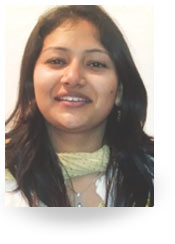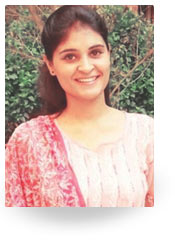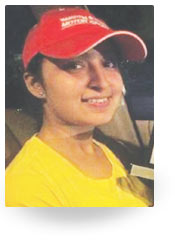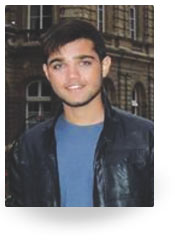Overview
MD in Bio-Chemistry at Sharda University is a three-year postgraduate programme that deals with the study of structure, composition and chemical reaction of substances in living systems. The goal of the post-graduate programme in Biochemistry is to empower students to conceptualise and explain biochemical events of life processes in health and disease and enable them to apply biochemical knowledge and skills for problem-solving in clinical situations and scientific research to help further understanding of life processes at the molecular level.
Aiming at Professional Development & Mentoring the curriculum of this programme offers students with opportunities to build a career in a variety of sectors, including research and non-research careers in biotechnology, academia, government, or wherever they may opt to work after completing their degree. The academic coursework includes core classes incorporating principles of biochemistry, cell biology, molecular biology and genetics with laboratory techniques, statistics, and advanced electives. Highly experienced and skilled professionals and faculty members provide well structured and elaborative training and learning sessions to the students.
Program Educational Objectives (PEO)
A post graduate student having qualified the MD (Biochemistry) examination should be able to:
PEO 1:explain clearly concepts and principles of biochemistry and cell biology, including correlations of these with cellular and molecular processes involved in health and disease.
PEO 2:effectively teach undergraduate students in medicine and allied health science courss so they become competent health care professionals and able to contribute to training of postgraduate post graduate students.
PEO 3:set up/supervise/manage a diagnostic laboratory in Biochemistry in a hospital, ensuring quality control, and providing a reliable support service.
PEO 4:provide clinicians with consultation services for diagnostic tests in biochemistry and in interpretation of laboratory results using an ethical and professional approach
PEO 5:carry out a research project from planning to publication and be able to pursue academic interests and continue life-long learning to become more experienced in all the above areas and to eventually be able to guide postgraduates in their thesis work.
Program Outcomes (PO’s)
The student during the training program should acquire the following competencies:
A. Cognitive domain
PO1: Describe and apply biochemical principles ,molecular and metabolic conditions to explain the normal state, abnormal disease conditions and mechanism
PO2: Acquire knowledge on application of various aspects of genetic engineering in medicine
PO3: Acquire knowledge and apply the principle of statistics, biostatistics and epidemiology to the evaluation and interpretation of molecular and metabolic disease states.
PO4: Evaluate, analyze and monitor disease states by applying relevant biochemical investigations and interpreting the clinical and laboratory data.
PO5: Able to integrate principles of immunology in biochemistry.
PO6: Demonstrate knowledge of basics of research methodology, develop a research protocol, analyse data using currently available statistical software, interpret results and disseminate these results and to have the potential ability to pursue further specializations and eventually be competent to guide students.
B. Affective domain
PO: Effectively explain to patients from a variety of backgrounds, the molecular and metabolic basis of disease states and lifestyle modifications.
PO: Communicate biochemical reasoning effectively with peers, staff and faculty, and other members of the health care team.
PO9: Demonstrate respect in interactions with patients, families, peers, and other healthcare professionals.
PO10: Demonstrate effective use of nutrition, lifestyle and genetic counseling.
PO11: Be aware of the cost of diagnostic tests and economic status of patients.
PO12: Acquire skills for self-directed learning
C. Psychomotor domain
PO13: Develop differential diagnoses for molecular and metabolic causes of diseases.
PO14: Predict effectiveness and adverse effects associated with disease intervention.
PO15: Perform routine investigations in hematology and microbiology and important biochemical, immunological and molecular biology techniques.
PO16: Observed working of important advanced techniques.
PO17: Demonstrate standard operating procedures of various methods and techniques used in clinical biochemistry.
PO18: Demonstrate presentation skills at academic meetings and publications.








.jpeg)

.jpeg)



.jpeg)







